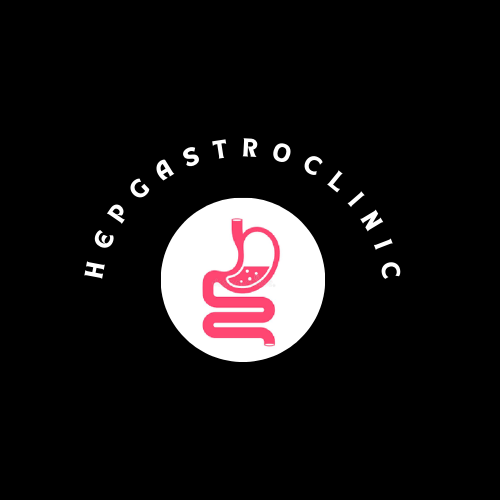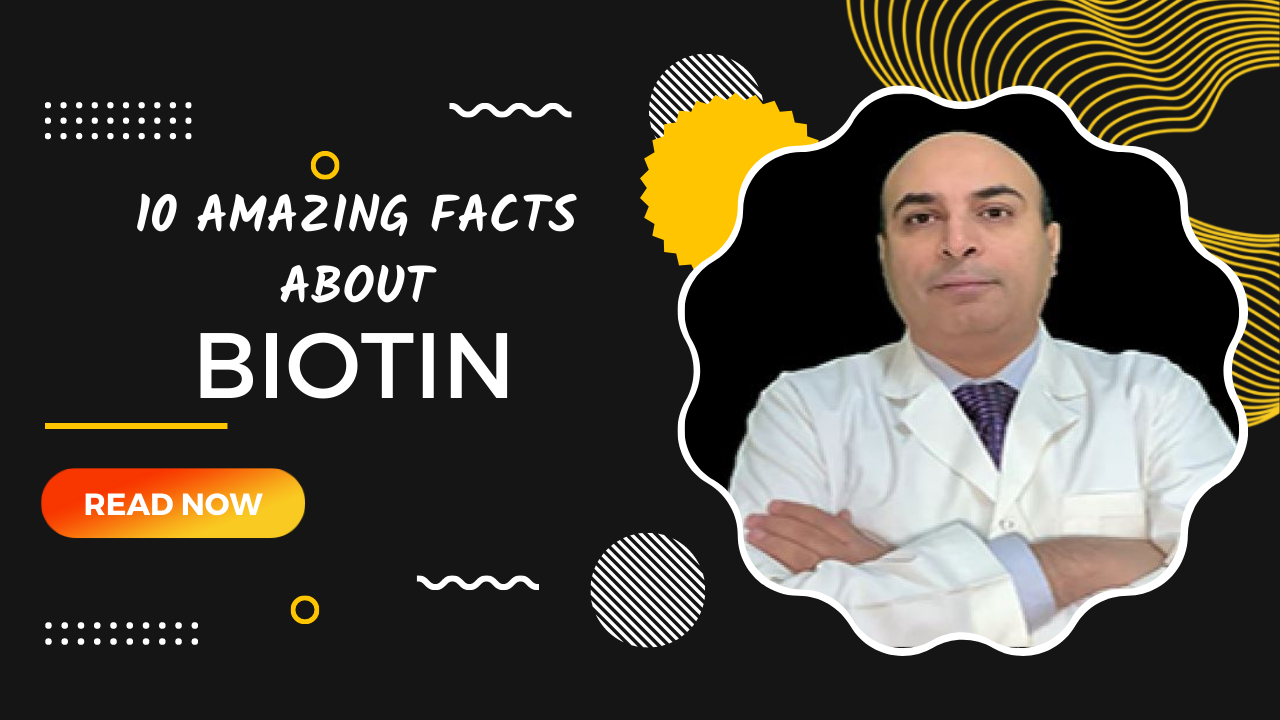11 Amazing Facts About Biotin
Biotin is an essential nutrient
found in many foods. It helps maintain healthy hair, nails, skin, and bones. Read
more.
What is biotin?
Biotin is also known as Vitamin H. Biotin
is also known as Vitamin H because it was first discovered in 1923 by Dr.
Alexander Shibasaburo Jimba, who called it “vitamin H” after discovering its
ability to prevent hair loss in rats. He later named it biotin after his son,
who had been born with alopecia (hair loss).
Biotin is also known as a coenzyme R.
This vitamin is important for normal growth and development.
Biotin was first isolated from brewer's yeast in 1884 by German chemist Karl Heinrich Ulrichs.
Biotin
is one of the eight B vitamins and is known to be part of the vitamin B family.
It is known as vitamin H and is often used together with vitamin C to improve a
person’s skin.
What are the sources of biotin in food?
- Liver of beef
- Eggs (cooked)
- Seafood
The avocado
- Pork
-Sweet potato
-Nuts and seeds
Who is at risk of a deficiency?
Biotin supplements are normally
unnecessary unless you are deficient in biotin or have a risk factor that
raises your chances of insufficiency.
Genetic factors.
Those with - Biotinidase deficiency
are the most vulnerable to biotin insufficiency. A hereditary disease that
prevents the body from reusing and recycling biotin. This disease is checked
for in newborns in the United States and many other countries.
Consistent alcohol consumption.
Long-term alcohol consumption is associated with considerable declines in
biotin levels because alcohol hinders biotin absorption.
Undernourishment.
Low nutritional
levels, particularly biotin, can result from insufficient dietary and nutrient
intake.
Bowel inflammation disorders (IBDs).
Crohn's disease and ulcerative colitis can reduce biotin production by
gut bacteria.
Pregnancy and breastfeeding.
Those who are pregnant, or
breastfeeding can develop low biotin levels despite using the vitamin on a
regular basis. This could be due to increased vitamin consumption, reduced
absorption, or both.
What are the symptoms and signs of biotin deficiency?
Biotin deficiency can manifest as:
Hair loss or thinning
Finger and toenails that are weak,
cracking, or brittle
Rashes near the eyes
Eyes that are dry
Cracks or rashes around the mouth
(cheilitis)
A swollen, aching tongue that is
black or magenta in color (glossitis)
Appetite loss
Sleep deprivation (insomnia)
Skin that is dry, itchy, or scaly
Fatigue
Depression or a bad mood
Nausea
Issues with digestion, such as loose
stools
Pains and aches
11 health benefits of biotin.
1. DENSIFIES HAIR
One of the main advantages of biotin
is that it promotes hair growth, which makes hair thicker and more lustrous.
Additionally, biotin can promote faster, more durable hair growth while making
hair appear healthier. This is fantastic news for both healthy individuals who
want their hair to appear its best and for individuals who have health
conditions that result in dull hair.
While those who eat balanced food every
day and have a good digestive system can absorb some biotin, those who have
digestive problems find it difficult to absorb enough vitamins and nutrients.
Elevated nutritional levels are frequently necessary for people with
malabsorption issues such as leaky gut syndrome, celiac disease, and Crohn's
disease to get the vitamins and minerals they require.
2. SKIN IMPROVEMENT
Many people’s inner health and
surface appearance might suffer significantly from a Vitamin H shortage. One of
the most frequent problems is dry, itchy skin, however more severe disorders
like psoriasis and acne can also occur. Remember that hormone imbalances can
cause major skin problems if you don't nourish your skin from the inside out.
Most of the time, a biotin
supplement can resolve the problem, enhancing skin and promoting a youthful
glow. It's critical to obtain biotin in the most efficient way to address
vitamin deficits. Although biotin is frequently added to topical skin and hair
care products, skin and hair cells cannot typically absorb this B complex
vitamin.
3. ENHANCES NAILS
Biotin is well renowned for its
capacity to strengthen nails in addition to enhancing hair and skin. Biotin in
larger doses has significantly improved the health of nails. According to
studies, people who take a biotin supplement can thicken their nails by up to
25% and have less splitting and breaking of the nails. Trial studies have also
revealed that taking a biotin supplement increases nail strength in an
astonishing 91% of subjects.
4. CONSTRUCTS TISSUES
Your body depends on B vitamins to
aid in the process of rebuilding once tissues degrade or muscles are damaged
because neither muscle nor tissue lasts indefinitely. One of the elements
required for restoring muscle strength and promoting tissue growth is biotin.
This vitamin is essential for reducing pain, swelling, and inflammation in the
muscles and joints. A biotin supplement can be just what you need to aid with
tissue regeneration if you frequently have joint discomfort or struggle with
muscle strength.
5. SUPPORTS CELL GROWTH
In addition to improving your
appearance, biotin supports some of your body's most vital processes. The
fundamental function of vitamin H is to control the synthesis of DNA. This
guarantees that each cell's genetic material functions properly and replicates
effectively. Strong cell development is always crucial, but it becomes much
more crucial when your cells are dividing quickly as they do when you're
pregnant.
Remember that you can get plenty of
this water-soluble vitamin with biotin tablets. But once it's in your
bloodstream, your body gets rid of any extra biotin. Thus, neither can you
overconsume this vitamin nor does your body ever accumulate a toxic reserve of
it.
6- DEFENSES YOUR BRAIN
B-complex
vitamins maintain the health of your nervous system. They work as a team to
prevent memory problems, cognitive disorders, Alzheimer's disease, and other
nervous system disorders. Biotin and the other B vitamins may improve your
focus, enhance your memory, and help you maintain a positive outlook.
7. CONTROLS BLOOD SUGAR
Blood sugar control is among the
most advantageous effects of biotin on humans. Biotin can be especially
beneficial for diabetics or people who have trouble maintaining a healthy blood
sugar level. According to studies, this B complex vitamin can increase insulin
secretion, which lowers blood glucose levels in people with Type 1 and Type 2
diabetes.
8. IMPROVES MOOD AND ENERGY
The ability of biotin to metabolize
carbohydrates, proteins, and lipids is one of its main roles. This vitamin aids
in the synthesis of fatty acids and some amino acids and serves as a coenzyme.
Your body can't use the energy it consumes without the B complex vitamins.
A deficiency in biotin can result in
a severe decline in energy because it and the other B vitamins are essential
for turning nutrients into fuel that your body can use. In fact, it can cause
stomach problems, mood swings, and even sensations of exhaustion. If your daily
diet doesn't provide you with a consistent amount of biotin, a supplement can
help you make up for the lost energy and improve your mood.
9. DEVELOPS THYROID FUNCTION
Your body depends on important
glands together with your nervous system to maintain normal activities and
keep you alive. Sleep, hunger, energy, and even pain are all controlled by
biotin, which is also essential for keeping the thyroid functioning properly.
Additional biotin can assist with thyroid regulation if your body has
difficulties regulating these fundamental processes, or if you gain weight,
have trouble falling asleep, or are generally exhausted all the time.
10. Reduces Cholesterol
Heart disease can really be brought
on by high amounts of low-density lipoprotein, also referred to as bad
cholesterol. This in turn may raise your risk of suffering a heart attack or
stroke. If you have trouble keeping your LDL levels in a healthy range, biotin
could be able to assist.
According to research, this vitamin
can help lower LDL cholesterol while increasing HDL cholesterol, often known as
good cholesterol. Biotin can help reduce the incidence of heart attacks and
strokes since B complex vitamins are also crucial in lowering inflammation and
plaque accumulation in arteries. This benefit will be especially beneficial to
diabetics and others who are predisposed to heart disease.
11. WEIGHT LOSS AIDE
In addition to improving metabolism,
Biotin can help with weight loss. Essentially, taking, or ingesting biotin
raises your resting metabolic rate. Because this vitamin boosts your metabolism,
it can help you lose weight faster, especially when combined with chromium.
Toxicity
Even at large doses, there is no
evidence of biotin toxicity in humans. Because it is water-soluble, any excess
will be excreted in the urine. Biotin has no determined upper limit or
hazardous dose.
How often are you supposed to take biotin?
Because there is insufficient data
to estimate the daily requirement for most healthy persons, there is no RDA
(Recommended Dietary Allowance) for biotin. Instead, there is an AI
(Appropriate Intake) level, which is assumed to provide adequate nutritional
intake.
The recommended daily dosage of
biotin for people aged 19 and up, as well as pregnant women, is 30 micrograms.
Lactating women require 35 micrograms per day.
The Tolerable Upper Intake Level is
the highest daily amount that is unlikely to cause undesirable side effects in
the general population (UL). There is no UL for biotin due to a lack of
evidence proving adverse effects from excessively high doses.
Are biotin supplements safe during pregnancy?
It is safe during pregnancy and breastfeeding, in addition, Biotin promotes the growth of fetuses and
children.
Because biotin
is essential for numerous biological processes, pregnant women should take
extra care to get enough of it to support the developing fetus. In fact, a
recent study found that many pregnant women do not naturally get enough biotin
each day. Many experts advise pregnant women to add more biotin to their
regular healthy diets because this has resulted in major birth problems. For
many expectant mothers, taking extra biotin is just as crucial as taking folic
acid to promote fetal growth, ensure the health of the unborn child, and reduce
pregnancy problems.
In some instances, new mothers don't include enough biotin in their breast milk, which causes their infants to have a biotin deficiency. Young children are especially at risk of developing a deficiency if they have allergies to or dislike of foods high in biotin. Low levels of biotin in newborns, young children, and new moms can readily be corrected with a biotin supplement. Before providing biotin to infants or children or taking a biotin supplement while pregnant or nursing, expectant or new moms should consult a doctor.
Where can I buy biotin near me?
You can easily buy biotin from
trusted stores like Amazon to get a special formula in proper concentration.
Summary
A biotin supplement can help correct a biotin
deficiency and restore hair health and growth. No strong evidence supports
using biotin supplements or biotin-added hair products to promote hair growth
in non-deficient people.

